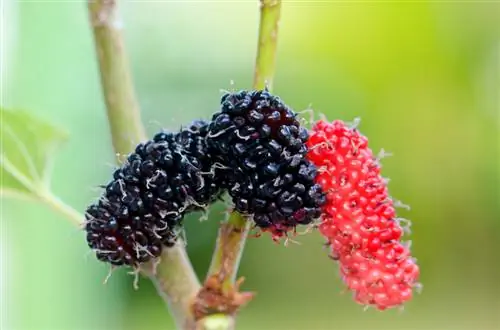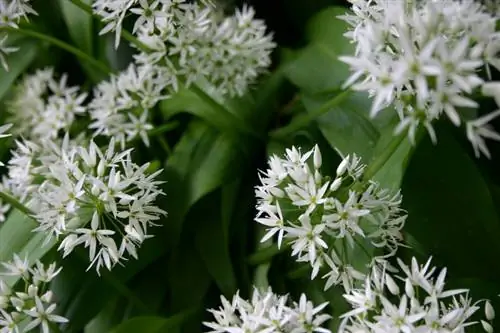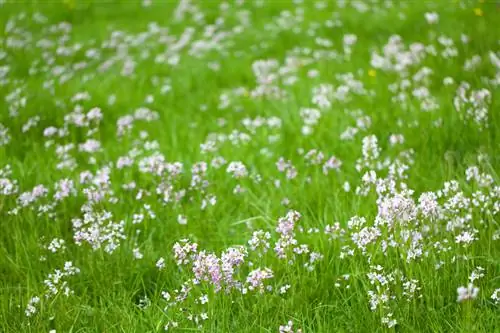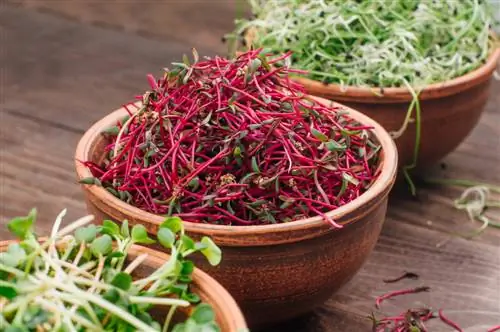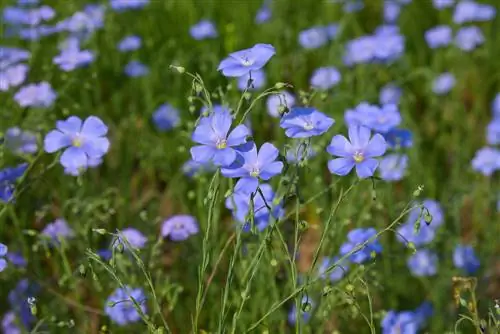- Author admin leonars@hobbygardeners.com.
- Public 2023-12-16 16:46.
- Last modified 2025-01-23 11:20.
The black mulberry is considered to be sensitive to frost. She doesn't like cold wind at all. It originally comes from western Asia, but is now also native to the southeast of the United States and the Mediterranean.
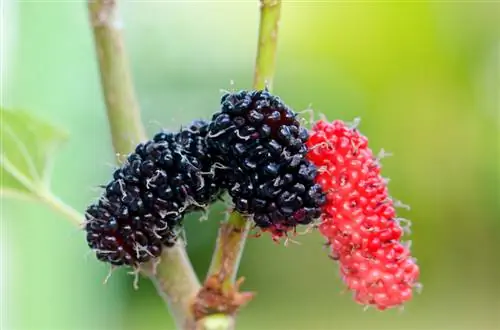
Where does the black mulberry grow best?
The black mulberry is sensitive to frost and prefers mild climates such as wine-growing regions. It can be cultivated as a container plant, but requires regular pruning and suitable overwintering conditions. The fruits have a high pectin content and have healing effects, such as lowering blood sugar.
In Germany, the black mulberry is increasingly being replaced by the red mulberry, as the latter is much less sensitive to cold and wind. The black mulberry is well suited as a container plant. However, with this planting it needs regular pruning and a suitable place for overwintering. Temperatures around freezing point and good ventilation are ideal conditions.
The black mulberry also feels quite comfortable in typical wine-growing areas because the climate there is generally mild. If you're at home there, you'll have the ideal location for mulberry trees and you'll be spoiled for choice. Because there are now many different varieties. Even weeping mulberry trees with umbrella-shaped branches are already on sale.
The black mulberry as a useful plant
Due to their higher pectin content, black mulberries taste less sweet than red or white mulberries. Unfortunately, fully ripe mulberries don't last long, which is why you rarely see them in shops or at the weekly market. After a maximum of two days, the ripe fruits fall from the tree and can be picked up from the ground. Then they have to be processed or consumed quickly.
You can make a syrup from the ripe black mulberries, which tastes very good when mixed with chilled mineral water and is an excellent thirst quencher. At your next party you can also use it to refine your sparkling wine and serve your guests an exceptional aperitif. Dried black mulberries taste similar to raisins, but fruitier.
The black mulberry as a medicinal plant
Mulberries are not only very tasty, they, like many other plants, have healing properties. In the Balkans, black mulberry leaves have been used to lower blood sugar since grandmother's time. An infusion made from the leaves is also said to reduce high fever and help against constipation.
Healing effects of black mulberry:
- astringent (contracting)
- laxative
- antidiabetic (blood sugar lowering)
- refreshing
Tips & Tricks
Only plant the black mulberry outdoors if you can offer it a place protected from the wind and good winter protection, otherwise planting it in a pot and overwintering indoors is definitely the better solution.

